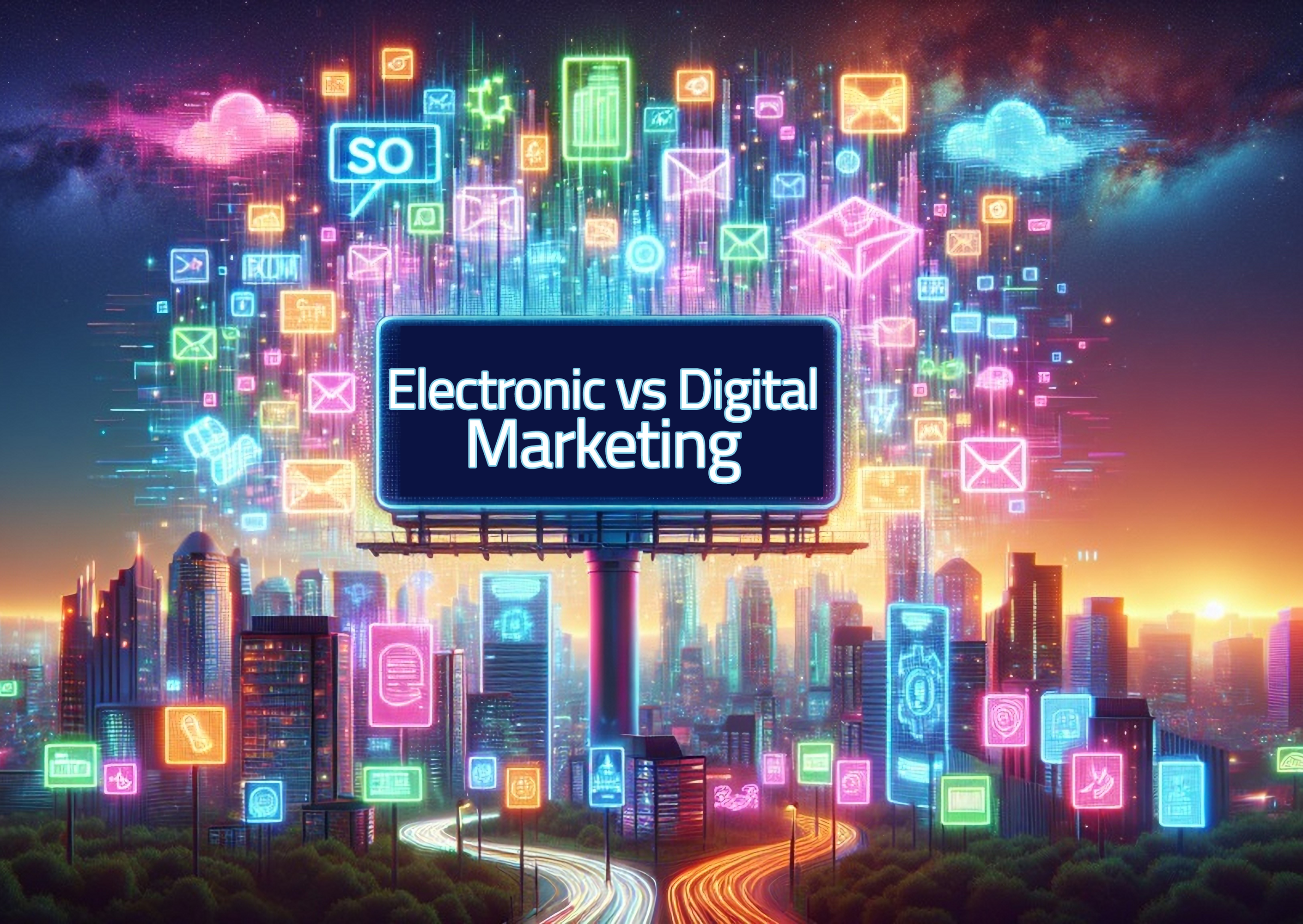
Strategic B2B campaigns forge lasting trust, boost industry
awareness, and become the engine for sustainable long-term business
growth. Unlike campaigns for consumers (B2C), which often aim for
fast sales, strong B2B marketing focuses on solving complex business
needs, proving its worth, and building long-lasting professional
relationships.
Successful campaigns use data-driven B2B marketing strategies. This
includes smart email marketing, targeted social media campaigns,
strong Search Engine Optimization (SEO), and creating excellent
high-quality content. Examples of this content are simple blog
posts, useful videos, customer reviews, and expert guides
(whitepapers). Using these tactics across different marketing
channels helps B2B companies connect better with their target
audiences.
Account-Based Marketing (ABM) is also key. It lets businesses target
specific, high-value clients with personal messages, making their
efforts more relevant. Every great B2B marketing campaign needs a
clear message and a strong call to action (CTA). This CTA should
guide potential clients to the next easy step, like signing up for a
demo, downloading a useful guide, or talking to a sales rep.
By showing thought leadership (being an expert in the field),
marketing teams make sure their work directly matches the needs and
interests of their audience. Below are 20 outstanding B2B campaigns
that engaged their target audiences, solved problems, and set high
standards for effective, results-driven B2B marketing strategies
that boost conversion rates and generate leads.
Why B2B Marketing Campaigns Are So Important
B2B marketing campaigns are vital for building credibility and
driving enterprise sales in any successful B2B strategy. Good
campaigns always put the customer first: they focus on understanding
their problems (pain points) and offering proven solutions. B2B
brands get big results by using social media marketing on platforms
like LinkedIn as part of a multi channel approach across multiple
channels. This helps them talk to potential clients in real time,
reach a wider user base, and engage key B2B decision makers. Also,
video marketing (including short ads, interviews, and even user
generated content) is becoming a powerful tool to grab attention and
explain complex ideas simply, especially during a product launch.
To boost lead generation and ROI, many B2B campaigns use a simple
landing page designed to solve a business concern and quickly turn
visitors into leads. Strong B2B content marketing is always
necessary. It means creating materials that truly add value and
connect with the business decision-makers while reinforcing a multi
channel approach, leveraging multiple channels, and highlighting
clear campaign features that make the message stand out.
What Makes a B2B Campaign Successful?
The most effective B2B campaigns share these core elements:
1. Clear Targeting:
The message must reach the right people. This precision often uses ABM to filter specific companies or roles.
2. Focus on Solutions:
Great campaigns fix common, difficult business problems using innovative ideas, or even AI-powered tools.
3. Valuable Content:
Provide useful information, real data, and true customer success stories. This builds the brand's reputation as a reliable source.
4. Many Channels:
Use a mix of channels like social media, live events, and organized email campaigns to reach people everywhere they look.
5. Proof of Value:
Use case studies and real examples to clearly show the product's worth and return on investment (ROI).
6. Unique Storytelling:
A creative and memorable storytelling approach helps the brand stand out and makes its solutions unforgettable.
20 Top B2B Marketing Campaigns for Inspiration
These campaigns reached their target audiences and made a measurable impact:
1. IBM’s "Smarter Planet"
They used real examples to show how IBM technology solves problems in sectors like healthcare.
Key Takeaway: : Link your brand to big industry issues to build credibility.
2. Salesforce’s "Trailhead"
This fun platform offered free training on Salesforce tools. It created a group of knowledgeable, loyal users.
Key Takeaway: Free learning resources build deep trust and loyalty.
3. LinkedIn’s "In It Together"
The campaign shared real stories of professionals who succeeded using the platform.
Key Takeaway: Real-life success stories make your brand feel human and relevant.
4. GE’s "Digital Twin"
GE showed how digital copies of physical assets boost efficiency. This demonstrated the practical value of their technology.
Key Takeaway: Showing practical applications builds trust.
5. Slack’s "Work, Simplified"
The campaign focused on making team communication easier by solving common workplace issues.
Key Takeaway: Show how your product fixes daily problems to make its benefits clear.
6. Mailchimp’s "Did You Mean…?"
They used humor around common mispronunciations of their name. This made the brand stand out and memorable.
Key Takeaway: Creativity and humor can help your B2B brand get noticed.
7. Adobe’s "Experience Cloud"
Aimed at marketers, this campaign showed how Adobe tools simplify complex workflows.
Key Takeaway: Solving workflow issues attracts professionals seeking efficiency.
8. Deloitte’s "Future of Work"
Deloitte offered research and insights on job market trends, helping businesses prepare for big changes.
Key Takeaway: Providing trusted, data-backed insights establishes authority.
9. Microsoft’s "AI for Earth"
This campaign showed how AI can solve environmental problems, linking Microsoft to social responsibility.
Key Takeaway: Supporting social causes improves brand reputation.
10. Zoom’s "Meet Happy"
The campaign highlighted how easy the platform is to use, meeting the huge demand for simple virtual meetings.
Key Takeaway: By focusing on the market's most urgent needs, your product instantly gains relevance and ensures it is timely.
11. HubSpot’s "Inbound Marketing"
HubSpot championed Inbound Marketing—providing helpful content instead of using traditional ads.
Key Takeaway: Teaching your audience establishes powerful brand authority.
12. Cisco’s "The Internet of Everything"
Cisco explained how connecting everything (people, devices) could change industries.
Key Takeaway: Presenting a big, future-focused idea builds market awareness.
13. Xerox’s "Get Optimistic"
Xerox provided helpful content on bouncing back from business challenges.
Key Takeaway: Offering positive, valuable content builds a dependable brand image.
14. Gartner’s "Magic Quadrant"
Gartner’s reports ranked tech leaders, helping businesses make smart decisions.
Key Takeaway: Providing trusted, objective insights builds unique credibility.
15. SAP’s "Run Simple"
SAP promoted how their technology makes complicated business processes easy.
Key Takeaway: Focusing on simplicity attracts businesses seeking efficiency.
16. Intel’s "Look Inside"
This showed how Intel's technology powers new innovations, building trust with companies needing reliable tech.
Key Takeaway: Showcasing your tech’s role in other innovations boosts your visibility.
17. Dropbox’s "Work Better, Together"
Dropbox promoted its platform as a tool for easy team collaboration.
Key Takeaway: Highlighting teamwork features attracts team-focused businesses.
18. Box’s "10 Million Strong"
Box celebrated reaching 10 million users, proving its position as a reliable business solution.
Key Takeaway: Celebrating milestones builds social proof and credibility.
19. Accenture’s "New Applied Now"
Accenture focused on offering fast, real-time advice to solve client problems quickly.
Key Takeaway: Highlighting quick solutions shows brand speed and flexibility.
20. Oracle’s "Cloud Platform"
Oracle showed how its cloud technology supports business growth.
Key Takeaway:Demonstrating new technology benefits builds long-term relevance.
Conclusion: The Simple Formula for B2B Success
These 20 campaigns prove that effective B2B marketing comes from
deeply knowing your target audiences, fixing their real pain points,
and consistently offering clear value. Great B2B campaigns build
trust, create partnerships, and position brands as necessary
resources.
Each campaign used powerful methods, whether it was strong
storytelling, detailed customer success stories, or support for good
causes. This shows how smart strategies can drive high audience
engagement, boost conversion rates, and reliably generate leads.
Many of these successful brands used platforms like LinkedIn and
simple, automated email campaign sequences to connect directly with
decision-makers. By using smart tools, focusing on SEO, and always
relying on data-driven marketing efforts, B2B companies can grow
their impact and ensure long-term, stable success.



































